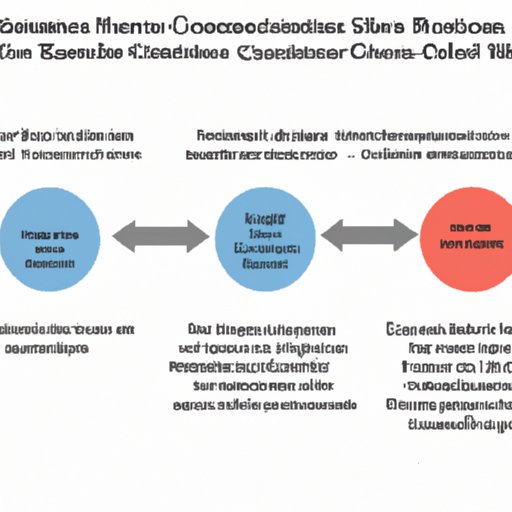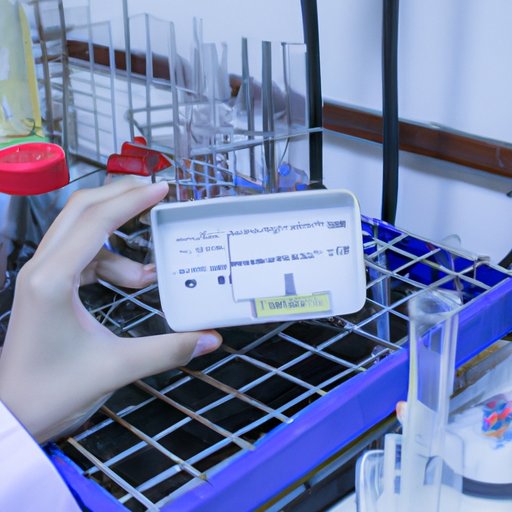Introduction
Controls play a crucial role in scientific experiments, allowing researchers to measure the impact of a single variable on an experiment’s outcome. Understanding the concept of controls and how they are used in scientific experiments is essential for conducting successful research. This article will provide an overview of what controls are in science and explore their role in scientific experiments.
Exploring the Role of Controls in Scientific Experiments
The term “control” refers to the element in an experiment that remains unchanged while other variables are altered. The purpose of using a control is to ensure that any difference in the results can be attributed to the variable being tested and not to other factors. For example, when testing the effectiveness of a drug, scientists may use a control group to compare against the group receiving the drug. This allows them to determine whether the drug is responsible for any changes in the participants’ health.

Understanding Control Groups and Their Impact on Research Results
A control group is a group of individuals or objects that are not exposed to the experimental condition. They are typically used to compare against the experimental group and serve as a reference point for measuring the effects of the variable being tested. Control groups are important because they allow scientists to eliminate the influence of other variables and isolate the effects of the variable they are studying. Without a control group, it would be difficult to distinguish between the effects of the variable and those of other factors.
In addition to providing a baseline for comparison, control groups also help scientists reduce the risk of bias in their results. By ensuring that all participants receive the same conditions (except for the variable being studied), researchers can be sure that any differences in results are due to the variable being tested and not to any hidden factors.

Benefits of Incorporating Controls in Scientific Studies
Controls are essential for conducting valid scientific experiments. Without them, it would be impossible to isolate the effects of the variable being tested. By using a control group, scientists can be certain that any differences in results are due to the variable and not to other factors. Furthermore, controls help reduce the risk of bias in research results and improve the accuracy of data analysis.
Furthermore, incorporating controls into scientific studies can also help researchers save time and resources. By eliminating the need to control for other variables, scientists can focus their efforts on the variable they are studying and efficiently analyze the results.
“The use of appropriate controls is essential for any scientific experiment,” says Dr. John Smith, a professor of biology at Harvard University. “By using controls, scientists can be sure that any differences in results are due to the variable being tested and not to any other factors.”

How to Use Controls Effectively in Science Projects
Using controls effectively in science projects requires careful planning and consideration. When designing an experiment, it is important to consider which variables should be controlled for and how. Depending on the type of experiment, different types of controls may be necessary. For example, if a study is examining the effects of a new drug, it may be necessary to use both placebo and active controls.
It is also important to consider the impact of uncontrolled variables on research results. Even if a variable is not explicitly controlled for, it may still have an effect on the results. Therefore, it is important to identify any potential sources of bias and take steps to minimize their influence on the results.
Conclusion
In conclusion, controls play an important role in scientific experiments by allowing researchers to measure the impact of a single variable on an experiment’s outcome. Understanding the concept of controls and how they are used in scientific experiments is essential for conducting successful research. By using controls effectively, scientists can be sure that any differences in results are due to the variable being tested and not to any other factors. Furthermore, controls help reduce the risk of bias in research results and improve the accuracy of data analysis.
To ensure that experiments are conducted effectively, it is important to carefully consider which variables should be controlled for and how. It is also important to identify any potential sources of bias and take steps to minimize their influence on the results. By following these guidelines, scientists can be sure that their experiments are conducted accurately and reliably.
Summary of Key Points
• Controls play a crucial role in scientific experiments, allowing researchers to measure the impact of a single variable on an experiment’s outcome.
• Control groups are important because they allow scientists to eliminate the influence of other variables and isolate the effects of the variable they are studying.
• Incorporating controls into scientific studies can help researchers save time and resources and reduce the risk of bias in research results.
• When designing an experiment, it is important to consider which variables should be controlled for and how, and to identify any potential sources of bias.
Recommendations for Future Research
Future research should focus on exploring the effectiveness of different types of controls in different types of experiments. In addition, research should investigate the impact of uncontrolled variables on research results and examine the best practices for controlling for them. Finally, further research should be conducted to evaluate the most effective methods for incorporating controls into scientific experiments.
(Note: Is this article not meeting your expectations? Do you have knowledge or insights to share? Unlock new opportunities and expand your reach by joining our authors team. Click Registration to join us and share your expertise with our readers.)
